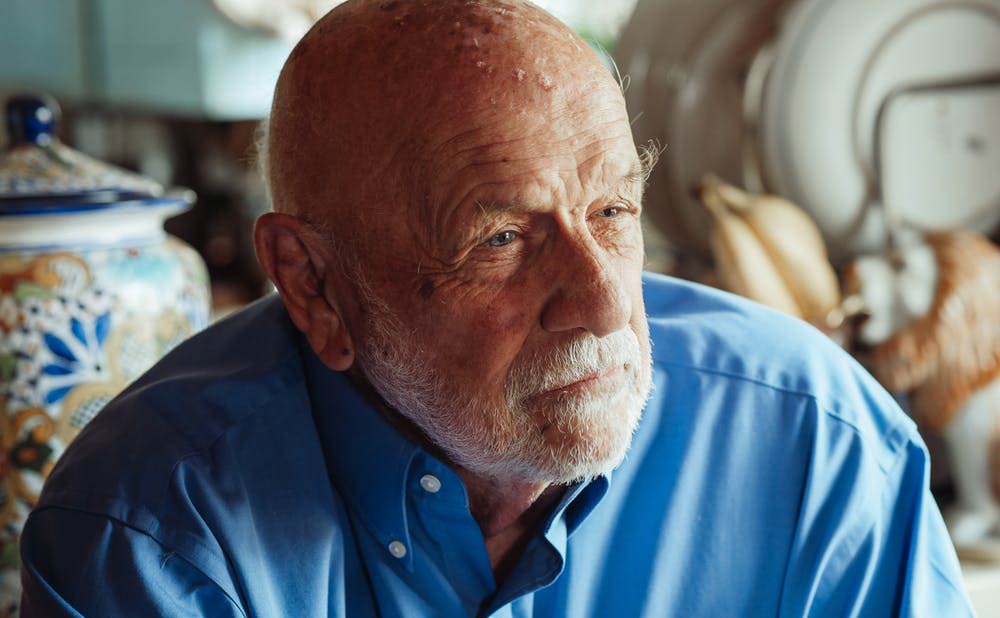Speak to a local care advisor at Assisted Living Locators by calling (888)-267-4741.
Learn about Assisted Living, Senior Living, Memory Care, and In-home care options.
While there are many conditions that may push a family to seek additional help for their aging loved one, few are as devastating as dementia. Although some amount of memory loss and forgetfulness should be expected, catching dementia early can help your family make the most of the time you have left.
In our comprehensive guide below, we’ll detail eight early warning signs that your loved one might have dementia. We’ll also provide you with our favorite five tips for providing the best care possible during the early stages of dementia.
8 Early Warnings Signs of Dementia
Although the effects of dementia can be devastating, catching it as early as possible gives you and your family more time to adjust to your loved one’s changing needs. The following are eight early signs that your loved one might be struggling with dementia.
1. Your loved one is forgetting things more than normal.
This might seem like an obvious sign, but sometimes it’s overlooked as a normal part of the aging process. For example, your loved one might be asking the same questions over and over. Or perhaps they are using notes to remember things when they didn’t do that before.
Forgetting things mostly becomes a problem when it is impacting your loved one’s ability to manage daily living. They may forget appointments or plans with others, even with reminders. If he or she is struggling to remember things you’ve just talked about, it may be an early warning sign that they’re struggling with the early stages of dementia.
2. Your loved one is having trouble concentrating.
Memory isn’t the only thing impacted by dementia. If your loved one is having a harder time creating plans or solving problems, it could be because they’re having a harder time with their short-term memory.
For example, your loved one may be having more trouble balancing their checkbook or going over their monthly bank statements. If you notice them struggling with these things, this may be the warning sign you need to get them evaluated.
3. Your loved one seems excessively confused.
During the early stages of dementia and memory loss, your loved one may have a pretty good grasp of what’s happening in the moment. However, they may struggle to grasp the passage of time, forgetting what month it is or how they got somewhere.
These signs may be subtle, like thinking a recently passed holiday is coming soon or getting lost on the way home from an errand. While some amount of confusion is normal, watch for signs that your loved one is more confused than usual.
4. Your loved one is having trouble with vision and balance.
There are many bodily changes that occur when a person ages, including issues with vision and balance. However, balance and vision problems that have gotten worse may be a sign that your loved one is having trouble interacting with their surroundings.
Many dementia patients struggle with balance, vision, and spatial awareness. They may struggle to understand how close things are, making it difficult for them to drive. If your loved one has had a few recent fender benders, it may be a sign that something else is going on.
5. Your loved one is forgetting common words.
Your loved one’s vocabulary may suffer if they’re dealing with dementia. They may forget commonly used words, instead grasping for replacement phrases to convey what they’re thinking. For example, your loved one might forget the word “lemonade,” instead saying “lemon drink.”
Pay special attention to any changes in their speech or written communication. Even if they eventually remember the word they’re searching for, forgetting common words and phrases can be a major sign that something beside normal aging is occurring in your loved one’s mind.
6. Your loved one is misplacing or losing things.
If your aging relative is struggling to find things they’ve set somewhere, it may be a sign that they’re dealing with dementia. For example, your loved one’s car keys may end up in the freezer while they put away groceries.
You should especially take note of how often this is happening. While the occasional forgetful moment is perfectly normal, habitually misplacing things (especially if that’s a new behavior) can be a red flag that something is wrong.
7. Your loved one is showing poor judgment.
When someone is in the earliest stages of dementia, they may show worsening judgment. For example, they might spend or act impulsively. In some cases, they may spend less time grooming themselves or take fewer safety precautions while driving.
Occasional poor decision-making skills are normal. Your loved one may forget to do something or make a hasty decision that ends up causing unintended consequences. However, you should watch carefully for signs that their day-to-day decision-making skills are worsening.
8. Your loved one’s personality has changed.
Personality changes are extraordinarily common in the early stages of dementia. Previously outgoing individuals may become more withdrawn. Formerly reserved people may become more outgoing, sharing things they would have kept private before.
Pay special attention to your loved one’s personality and watch for signs of change. While everyone changes gradually throughout life, a sudden and severe change in personality could be a sign that your loved one is grappling with the early stages of dementia.
5 Tips for Helping Your Loved One with Suspected Dementia
Now that you know what signs to watch out for, you’re ready for our top five tips for helping your loved one through the beginning stages of dementia. Whether you only suspect dementia or you have a newly confirmed diagnosis, these tips will help you best care for your aging loved one.
1. Make sure your loved one is evaluated by a doctor.
An early dementia diagnosis can help you and your loved one plan for the future, so it’s important to make sure they’re diagnosed as early as possible. Even if your aging relative is otherwise healthy, memory care is an essential part of their personal health care.
We talked to one family who had a hard time getting their loved one evaluated by a doctor. Although they saw the differences at home, their mom was as sharp as ever at the doctor’s office. When they were finally able to share their concerns with her doctor, they were able to make plans for her care.
2. Create regular routines and rhythms.
Regular routines can help your loved one with dementia thrive. For example, make sure daily activities like bathing and eating meals occur at the same time every day. While some disruptions to this schedule may occur, keeping to the routine will help your loved one cope with their increased memory problems.
This may even include other things, such as certain shows you watch together each day. We recently heard from one family that watches Family Feud on Game Show Network every night. When the show is over, their grandma knows that it’s time to get ready for bed. This simple routine has made things easier for everyone.
3. Put a system in place to make sure they take their medication as prescribed.
Forgetting to take medication can have a detrimental effect on your loved one’s health. If they’re left to rummage through bottles to find the right ones, they may struggle to remember whether they’ve taken their meds. This can cause missed or extra doses, both of which can be hazardous to your loved one’s health.
If your aging loved one still wants the independence of taking their medication themselves, set them up with a pill organizer. This way, they’ll be able to see whether or not they’ve taken their meds.
In some cases, the best system involves having another family member administer their medication. If your loved one struggles to remember their meds, even with a pill organizer or other method, it may be time to task someone else with administering their medication.
4. Help your loved one retain as much independence as possible.
You may struggle to resist the urge to jump in and do everything for your loved one, especially if you see him or her struggling. However, it’s important to help your aging loved one maintain as much independence as possible for as long as you can.
For many families, this might mean hiring home care. In the first few stages of dementia, your loved one won’t need the around-the-clock care of a nursing facility, but may benefit from the occasional assistance of an in-home care professional. To find home care providers near you, check out our list of resources here.
5. Involve your loved one in the creation of a personal care plan.
When you catch a loved one’s dementia early on, you can work together to make a plan for their care. Go over all important medical information and documentation. Make sure your loved one has legal documents such as a will, power of attorney, and medical directive. These documents will help them communicate their wishes, even when their memory is gone.
While no one wants to talk about these things with a loved one, they’re important conversations you should have as early as possible. This also allows you to factor your loved one’s wishes into their care plan instead of leaving the family to wonder what your loved one would have wanted.












